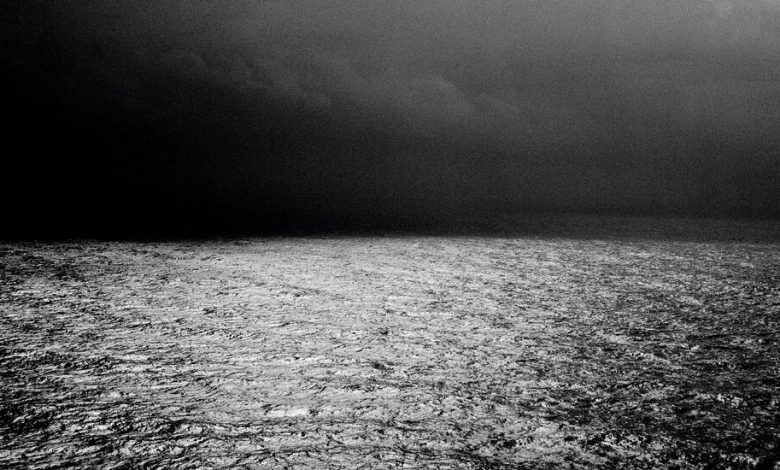Echoes of Oceans Past

Not that long ago the world’s oceans were viewed as too gargantuan for humans to influence. This view was voiced most notably in 1883 by the English biologist Thomas Huxley, who in his inaugural address to the International Fisheries Exhibition in London asserted that “all the great sea fisheries are inexhaustible.”
Nowadays, such naïveté seems inconceivable. We’re witnessing rampant overfishing and the decline in size of commercially important fish; rising water temperatures and even “marine heat waves” that are throwing ecosystems into disarray and driving fish and crustacean stocks to the relief of deeper water and toward the poles; acidity that is challenging the ability of sea creatures to form shells; lessening oxygen levels and “dead zones”; contamination from oil spills — a gloomy totality that has come to be known as the “Aquacalypse.”
The seemingly inexhaustible is becoming dangerously exhausted.
I’m an aquatic conservation biologist at Queens College. Among the courses I teach is a graduate seminar on “historical ecology” in the context of marine conservation. My students become most absorbed not in the grim realities of the alarming present, which they take as a given, but by historical accounts of incredible abundance. For instance, in the 1500s, Europeans exploring Nova Scotia simply dropped baskets in near-shore waters and hauled up large cod. Spanish sailors near Cuba saw turtles “in such vast numbers that they covered the sea.” Travelers noted large whales “infinite in number,” “impossible to be counted.” River herring once ran up rivers from the sea to spawn in quantities that seemed “unbelievable, indeed, indescribable, as also incomprehensible.”
Again and again, my students are astonished and in awe of just how much sea life has vanished. They are experiencing a reset from what is known as the “shifting baselines syndrome”: the notion that generations of environmental decline has steadily obscured our view of past plenitude and left us thinking that the environmental conditions in which we’ve grown up are normal. The danger of this warped perspective is that we become more willing to accept the world as it is without ever knowing what it was. With an environmentally degraded planet as our baseline, our conservation aspirations are already hobbled.
Their reactions underscored for me the emerging importance of historical ecology in our efforts to conserve the natural world and allow it to replenish itself. Present-day fisheries, for instance, are still largely managed by biologists against baselines established through records from the second half of the 20th century. But a growing body of work shows that sea life had been compromised well before that time, often deeply so. Today, researchers can go back centuries and even millenniums to construct a more accurate understanding of healthy, resilient oceans.
This work is generating surprising insights. Important findings have emerged through analyses based on simple sources such as old photographs, the logbooks of whalers, the diaries of missionaries and even pirates, oral histories, market receipts, restaurant menus, and archaeological and paleontological digs; and some sources as sophisticated as algorithms that can estimate population numbers going back thousands of years from contemporary DNA samples. The collective results, a signal of plenteous abundances, seem like evidence from another world.
In the classroom, I would issue my students a challenge for the semester: Though we would mostly study the past, they should consider the trajectories of change and look to the future to predict whether our oceans will be recovering or become further degraded in 2050, a milepost probably marking the middle of their careers. Most were in their 20s and many were pursuing master’s degrees. They not only grasped the significance of the shifting baselines paradigm but also were experiencing a personal sense of loss, of the biotic richness they knew they would never witness.
When our final meeting arrived, I polled the class, repeating my question: “Would the condition of the oceans be better or worse in 2050?” Fifteen years ago, when I first began leading this seminar, about half the students displayed guarded optimism. Since then there have been some successful protective measures to better regulate fisheries and cordon off and protect areas of the sea. But given the far weightier recent stream of negative news, not a single student in my most recent class believed the state of the oceans would improve by then.
In “A Sand County Almanac,” the conservationist Aldo Leopold wrote, “One of the penalties of an ecological education is that one lives alone in a world of wounds.” An ecological education focused on contemporary conditions can well enough describe present-day biodiversity, food webs and the interactions of organisms with their environment. But without knowledge of former biological wealth and productivity and an understanding of how healthy and resilient ecologies functioned, one remains oblivious to the injuries. To know the past is to know those wounds are gaping. Caring and its essential offspring, conservation, are born from that knowledge.
The middle of this century is only three decades away — long enough to drive marine waters to deeper levels of degradation and defaunation, yet ample enough time to reverse these trends.
My students’ astonishment and passion have shown me that historical ecology is a powerful tool. We must look backward to truly comprehend our losses — resetting those baselines — in order to move forward.
John Waldman is a professor of biology at Queens College and the author of “Running Silver: Restoring Atlantic Rivers and Their Great Fish Migrations.”
The Times is committed to publishing a diversity of letters to the editor. We’d like to hear what you think about this or any of our articles. Here are some tips. And here’s our email: [email protected].
Follow The New York Times Opinion section on Facebook, Twitter (@NYTopinion) and Instagram.




